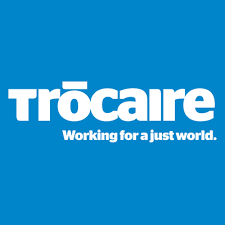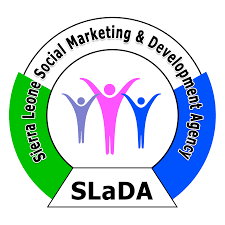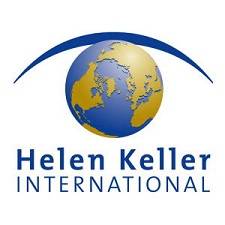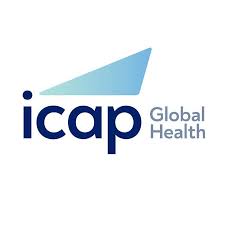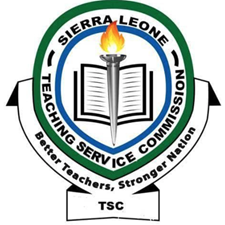🇸🇱 Job Vacancies @ UN Women – 3 Positions
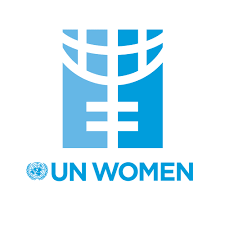
UN Women is recruiting to fill the following positions:
1.) Women's Economic Development Planning Consultant
2.) Consultant - Development Finance Expert SSA International
3.) Consultant to Develop Policy Brief on the Implementation of the Gender Act 2022
See job details and how to apply below.
1.) Women's Economic Development Planning Consultant
Background
UN Women is the United Nations global champion of gender which fulfills a Triple Normative-Coordination-Operational mandate, upholding standards for gender equality and women's empowerment and making the vision of the Sustainable Development Goals a reality for women and girls and standing behind women's equal participation in all aspects of life. UN Women links global, national, and local actors to create an enabling environment, working with governments and civil society to design laws, policies, programs, and services to ensure that defined standards truly benefit women and girls worldwide. The Agency works to identify and dismantle structural barriers to GEWE and unequal power relations, including discriminatory laws, policies, and practices.
Building on the impacts and the knowledge of UNIFEM which opened its office in 2002 in Sierra Leone, UN Women established its office in 2011. In line with its universal Normative, Coordination, and Operational triple mandate, the UN Women Office in Sierra Leone works with the Government of Sierra Leone, Civil Society (especially women's movements), local communities, the international community, and the private sector to advance the agenda of gender equality and the empowerment of women and girls in the country. At normative level in Sierra Leone, UN Women supports intergovernmental institutions in promoting gender mainstreaming and standards for implementing women's and girls' human rights through twenty-eight (28) Ministries, the Armed and the Police Forces. The Agency supports national policies and laws such as the 2019 Amendment of the Sexual Offenses Act, the GEWE Act 2022, and the GEWE Policy of 2020 that aim at localizing global standards and norms such as CEDAW, UNSCR 1325, the Beijing Declaration and Action Plan, the Maputo Protocol on Women's Rights.
Women in Sierra Leone constitutes 57 percent of the workforce, are the backbone of the agricultural sector, and play a vital role in natural resource management and food production. Yet, 80 percent of registered land belong to men (UNDP, 2023) [1] who have control over cash crop production, farming inputs and technology, while women remain discriminated and denied of ownership and access to, or control of land and most productive resources. Rural women, especially those in remote communities, face severe disadvantages and live in multifaceted poverty. Women are also mostly limited to the informal sector as their ability to participate in the formal sector is largely hindered by unpaid care responsibilities and male-customized business languages and regulations. Inclusive and tailored women's empowerment with key focus on economic development and social protection initiatives and programmes are central in driving effective poverty reduction and economic prosperities.
Multiple and intersecting forms of discriminatory and inequality sustaining norms and practices that favor men and constrain women reveal how the economic oppression of women is context-specific and incumber the economic progress of a nation.
To address gender inequalities and empower women in fundamental areas such as politics, governance, access to justice, finances, and natural resources, the Government of Sierra Leone has taken significant steps in developing inclusive policies like the National Land Policy, the Customary Land Rights Act and the Land Commission Act. The recent Feed Salone program and the Medium-Term National Development Plan (2024-2030) translate some of these policies and laws into operational strategies.
Through its Women Economic Empowerment (WEE) Programme, UN Women work closely with partners at multi-layered levels with several government ministries, departments and agencies, chieferies, local Councils, and local implementing partners to
[1] UNDP, (2023), Barriers and Enablers of Women's Participation in Revenue Generation in Sierra Leone https://www.undp.org/sites/g/files/zskgke326/files/2023-02/Barriers-and-Enablers-of-Women%E2%80%99s-Participation-in-Revenue-Generation-in-SierraLeone-2023.pdf support women farmer groups and cooperatives nationwide. In alignment with its vision, UN Women's Economic Empowerment Strategy aims to ensure that all women have income security, decent work, and economic power and autonomy.
Duties and Responsibilities
UN Women is seeking a Women's Economic Development Planning Expert with proven experiences in climate resilience, economic development systems, access to market, inclusive green/blue economies and jobs, especially for women and youth, private sector engagement for women's economic empowerment, and innovative approach to rural women development. Reporting to the Head of Office, and working under the guidance of the Women's Economic Empowerment Lead of UN Women Sierra Leone, the Consultant has the duty to help UN Women achieve the followings objectives:
- To set forth a human rights-based gender-responsive, multisectoral and multi-level approach to economic empowerment that responds to patterns of gendered marginalization and discrimination and transforms women's economic and social status to improve their livelihoods, rights and resilience, contributing to the ones of their households, communities and the Nation.
- To scale up UN Women's leadership in the field of women's economic empowerment (WEE) and influence national discourse through the development of normative frameworks and coordination with the Government of Sierra Leone, the UN System, the private sector and other key stakeholders.
- To refine and amplify UN Women's impact in addressing the most pressing challenges related to WEE, including systemic economic inequality, informality, a deepening care crisis, climate change and environmental degradation.
To refine and amplify UN Women's impact in addressing the most pressing challenges related to women's economic empowerment especially at community levels, including systemic economic inequality, informality, access to market, a deepening domestic care services, environmental degradation, energy, and climate change factors.
Key Deliverables
The following are expected deliverables based on the scope of work defined above:
- A very comprehensive inception report which includes, among others, a clear methodology, guidelines and an action plan.
- An analytical situational report depicting the current position and impact of UN Women on women's economic resilience and empowerment in Sierra Leone, with actionable recommendations for scaling gains, improving in gaps, and innovating for progress.
- A compelling documentation of the situation, potentials and visions of women's economic resilience, and existing opportunities for the fulfillment of the visions. This must be researched and presented from a systemic analysis of economic inequality, informality, unpaid domestic care influence, climate change and environmental degradation and opportunities.
- The document of UN Women Sierra Leone Strategy for Women's Climate Smart Economic Growth delineated from the two precedent situational documents to meet the objectives set for this consultancy (please see the 4 objectives).
- A final note of mission.
The consultant may be performing other duties within his/her functional duties as deemed necessary for the achievement of the objectives assigned to consultancy
Competencies
Core Values:
- Respect for Diversity
- Integrity
- Professionalism
Core Competencies:
- Awareness and Sensitivity Regarding Gender Issues
Accountability
- Creative Problem Solving
- Effective Communication
- Inclusive Collaboration
- Stakeholder Engagement
- Leading by Example
Please visit this link for more information on UN Women's Core Values and Competencies: FUNCTIONAL COMPETENCIES:
- Strong knowledge of green and blue economy and job edSyrxs C0zl6U
- Strong knowledge of gender equity and women's empowerment issues
- Strong knowledge of UN system and understanding of inter-agency coordination processes
- Strong knowledge of results-based programme planning and management
- Strong analytical skills
- Ability to promote and monitor inclusion of gender-specific objectives, indicators, targets and activities in the UN agencies programmes
- Ability to provide advice and support.
Required Skills and Experience
Education
- A post-graduate degree (Doctorate or Master's or equivalent) in economics, agronomy, socio-economy, or other clearly relevant field is required.
- A first-level university degree in combination with four additional years of qualifying experience may be accepted in lieu of the advanced university degree
- Required Experience:
- At least 15 years of experience in development research, planning and programming focused on the intersection of women, economic development, agriculture and gender.
- In-depth understanding of economic development, green and blue economies/jobs, rural development, participatory approach, development factors and stakeholders, especially in the African Union and ECOWAS contexts.
- Outstanding knowledge of women's economic situation, gender norms and gender-based barriers and opportunities in access to resources for economic development, especially in low-income West-African countries.
- Experience in designing gender responsive national economic development programs, with strong focus on women's economic empowerment, climate action, energy, environmental sustainability management, transformative processes and advanced gender-equality policies.
- Proven track records in conducting high quality analysis of gender dynamism, women's economic empowerment challenges and opportunities, analysis of stakeholders from gender considerations in developing countries, particularly in West Africa.
- Experience in the development program planning, evaluation, management, monitoring and reporting.
- Track records of analyzing, synthetizing and conceptualizing complex insights, practices and contexts, and ability to actively report, and present the outputs.
- Desired qualifications
- Experience working in gender equality and women's rights at the international level.
- Working experience in developing countries with the UN system, Agencies, Funds or Programs in fields relevant to this consultancy, especially in the ECOWAS contexts
- Language
- Fluency in English is required.
2.) Consultant - Development Finance Expert SSA International
Background
UN Women is the United Nations global champion of gender which fulfills a Triple Normative-Coordination-Operational mandate, upholding standards for gender equality and women's empowerment and making the vision of the Sustainable Development Goals a reality for women and girls and standing behind women's equal participation in all aspects of life. UN Women links global, national, and local actors to create an enabling environment, working with governments and civil society to design laws, policies, programs, and services to ensure that defined standards truly benefit women and girls worldwide. The Agency works to identify and dismantle structural barriers to GEWE and unequal power relations, including discriminatory laws, policies, and practices.
Building on the impacts and the knowledge of UNIFEM which opened its office in 2002 in Sierra Leone, UN Women established its office in 2011. In line with its universal Normative, Coordination, and Operational triple mandate, the UN Women Office in Sierra Leone works with the Government of Sierra Leone, Civil Society (especially women's movements), local communities, the international community, and the private sector to advance the agenda of gender equality and the empowerment of women and girls in the country. At normative level in Sierra Leone, UN Women supports intergovernmental institutions in promoting gender mainstreaming and standards for implementing women's and girls' human rights through twenty-eight (28) Ministries, the Armed and the Police Forces. The Agency supports national policies and laws such as the 2019 Amendment of the Sexual Offenses Act, the GEWE Act 2022, and the GEWE Policy of 2020 that aim at localizing global standards and norms such as CEDAW, UNSCR 1325, the Beijing Declaration and Action Plan, the Maputo Protocol on Women's Rights.
Women in Sierra Leone constitutes 57 percent of the workforce, are the backbone of the agricultural sector, and play a vital role in natural resource management and food production. Yet, 80 percent of registered land belong to men (UNDP, 2023) [1] who have control over cash crop production, farming inputs and technology, while women remain discriminated and denied of ownership and access to, or control of land and most productive resources. Rural women, especially those in remote communities, face severe disadvantages and live in multifaceted poverty. Women are also mostly limited to the informal sector as their ability to participate in the formal sector is largely hindered by unpaid care responsibilities and male-customized business languages and regulations. Inclusive and tailored women's empowerment with key focus on economic development and social protection initiatives and programmes are central in driving effective poverty reduction and economic prosperities.
Multiple and intersecting forms of discriminatory and inequality sustaining norms and practices that favor men and constrain women reveal how the economic oppression of women is context-specific and incumber the economic progress of a nation.
To address gender inequalities and empower women in fundamental areas such as politics, governance, access to justice, finances, and natural resources, the Government of Sierra Leone has taken significant steps in developing inclusive policies like the National Land Policy, the Customary Land Rights Act and the Land Commission Act. The recent Feed Salone program and the Medium-Term National Development Plan (2024-2030) translate some of these policies and laws into operational strategies.
Through its Women Economic Empowerment (WEE) Programme, UN Women work closely with partners at multi-layered levels with several government ministries, departments and agencies, chieferies, local Councils, and local implementing partners to support women farmer groups and cooperatives nationwide.
[1] UNDP, (2023), Barriers and Enablers of Women's Participation in Revenue Generation in Sierra Leone https://www.undp.org/sites/g/files/zskgke326/files/2023-02/Barriers-and-Enablers-of-Women%E2%80%99s-Participation-in-Revenue-Generation-in-SierraLeone-2023.pdf
Duties and Responsibilities
UN Women is seeking a Development Finance Expert with proven experiences in microfinancing systems, inclusive financing especially for women and youth, private sector's financial systems, and innovative, and gender equality enabling systems of inclusive financing. Reporting to the Head of Office, and working under the guidance of the Women's Economic Empowerment Lead of UN Women Sierra Leone, the Consultant has the duty to help UN Women achieve the followings objectives:
- To refine and amplify UN Women's impact in addressing the most pressing challenges related to financing women's economic empowerment especially at community levels, including systemic financial access inequality, informality, and the roles of environmental, energy, and climate change factors.
- To strengthen linkages of local and national financial systems to advance women's economic rights and empowerment through productive multi-stakeholder partnerships.
To set forth a human rights-based gender-responsive and multisectoral approach to financing for women's economic empowerment that responds to patterns of gendered marginalization and discrimination and transforms women's economic, social and public life, to improve their livelihoods, rights and resilience
Key Deliverables
The following are expected deliverables based on the scope of work defined above:
- A very comprehensive inception report which includes, among others, a clear methodology, guidelines and an action plan.
- A situational report depicting the landscape of women's access to finance at community level, and how it links with national financial systems, mapping existing systems, mechanisms, opportunities and challenges.
- A coherent and consistent document of strategy to meet the objectives set for this consultancy (please see the 3 objectives), including a tentative plan of implementation.
The consultant performs other duties within her/his functional duties as deemed necessary for the efficient achievement of the objectives assigned to consultancy
Competencies
Core Values:
- Respect for Diversity
- Integrity
- Professionalism
Core Competencies:
- Awareness and Sensitivity Regarding Gender Issues
- Accountability
- Creative Problem Solving
- Effective Communication
- Inclusive Collaboration
- Stakeholder Engagement
- Leading by Example
Please visit this link for more information on UN Women's Core Values and Competencies: FUNCTIONAL COMPETENCIES:
- Strong knowledge of gender equity and women's empowerment issues
- Strong knowledge of UN system and understanding of inter-agency coordination processes
- Strong knowledge of re edSys6f C0zl6U
- sults-based programme planning and management
- Strong analytical skills
- Ability to promote and monitor inclusion of gender-specific objectives, indicators, targets and activities in the UN agencies programmes
- Ability to provide advice and support
Required Skills and Experience
Education abd Certification
- Master's degree (or equivalent) in finance, economics, laws, business administrations, or other relevant field is required.
- A first-level university degree in combination with two additional years of qualifying experience may be accepted in lieu of the advanced university degree
- Certification in subject(s) relevant to this consultancy would be an added advantage
- At least 8 years of experience in development fields focused on the intersection of gender and financial services.
- In-depth understanding of microfinancing, financial inclusion, financial services providers (Traditional and FinTechs), digital financial services, especially for low-income in West Africa.
- Outstanding knowledge of women's financial inclusion, gender-based barriers in access to finance, and gender norms, especially in low-income West-African countries.
- Experience in designing gender responsive financial systems, products, processes, and policies
- Proven track records in conducting high quality gender analysis and women's financial inclusion challenges and opportunities as well as influencing stakeholders on gender considerations in developing countries, particularly in West Africa.
- Experience in the development, planning, implementation, monitoring and reporting of programmes is required.
- Track records of analyzing, synthetizing and conceptualizing complex insights, practices and contexts, and ability to actively report, and present the outputs.
- Desired qualifications
- Have authored reports, strategies, or concepts, etc. with a distinctive practical lens on women's inclusive financing for economic development and gender barriers in financial inclusion in West Africa.
- Experience working in gender equality and women's rights at the international level.
- Working experience in developing countries with the UN system, Agencies, Funds or Programs
- Language
- Fluency in English is required.
3.) Consultant to Develop Policy Brief on the Implementation of the Gender Act 2022
Background
N Women, grounded in the vision of equality enshrined in the Charter of the United Nations, works for the elimination of discrimination against women and girls; the empowerment of women; and the achievement of equality between women and men as partners and beneficiaries of development, human rights, humanitarian action and peace and security.
Insert a paragraph on the background and context of the engagement. Include which priorities govern or provide direction for the work of the consultant to demonstrate link between UN Women's priorities and the consultancy's expected outcomes.
Following the enactment of the Gender Equality and Women's Empowerment (GEWE) Act in 2022, Sierra Leone has achieved a historic 30.4% female representation in parliament. In parallel, financial assistance and resources have been extended to women farmers, seeking to bolster their role in agriculture and improve productivity. These dual advancements in women's representation and economic engagement provide a timely opportunity for an impact assessment to analyze the legislative productivity gains from increased female representation and the outcomes of targeted agricultural support for women.
This study aims to provide evidence-based insights into the impacts of these interventions, with a view to informing policy and programmatic decisions by the government and international par
The purpose of this consultancy is to conduct an in-depth assessment of:
- The impact of increased female representation in parliament on legislative productivity.
- The outcomes of financial support to women farmers in enhancing agricultural productivity and economic empowerment.
- The synergies between women's political representation and economic empowerment, particularly in rural and agricultural sectors.
Insert a paragraph on organizational setting, reporting and collaborators.
The consultant will be reporting to the Head of Office , and will be supported by Programme Specialist Leadership Governance and Political Participation, who will be the point of contact on the contract and payment issues. The Consultant will work closely with the UN Women Partners in the Institute of Governance Reform .
Duties and Responsibilities
he consultant will be responsible for:
- Assessing the extent to which female MPs contribute to legislative productivity, focusing on attendance of both women and men.
- Evaluating the impact of government financial assistance on women farmers, specifically in terms of agricultural productivity, food security, and household income.
Analyzing linkages between women's increased representation in parliament and the prioritization of policies benefiting women in agriculture and rural development
- Providing actionable recommendations for leveraging female political and economic empowerment to promote sustainable development in Sierra Leone.
The consultant will perform the following tasks:
- Literature Review and Context Analysis
- Review relevant literature, policies, parliamentary records, and government reports on gender, legislative productivity, and agricultural development in Sierra Leone.
- Contextualize findings within the legislative and agricultural sectors to establish a baseline understanding.
- Quantitative and Qualitative Data Collection
- Design and conduct surveys of women farmers who received financial assistance, gathering data on productivity, income, and food security.
- Develop structured interviews and focus group discussions with female MPs, government officials, rural women, and community leaders to capture qualitative insights on legislative engagement and agricultural productivity.
- Case Studies and Field Visits
- Conduct case studies in selected districts to examine the impact of these initiatives in local settings.
- Facilitate focus groups to capture community-level feedback on the effects of increased female representation and targeted agricultural assistance.
- Data Analysis and Reporting
- Analyze quantitative and qualitative data to assess the correlation between female representation in parliament and legislative productivity.
- Evaluate the outcomes of financial assistance on women farmers and agricultural productivity.
- Synthesize findings into a comprehensive report with evidence-based recommendations.
- Presentation of Findings
- Present preliminary findings to UN Women for feedback.
- Submit a final report and make a formal presentation of the findings and recommendations to stakeholders.
Consultant's Workplace and Official Travel
This is a consultancy based in Freetown Sierra Leone. The assignment is mainly Desk Based and the Consultant will engage stakeholders at a national level in Freetown and may need to travel to the Districts in Sierra Leone
Competencies
Core Values:
- edSyvKP C0zl6U
- Respect for Diversity
- Integrity
- Professionalism
Core Competencies:
- Awareness and Sensitivity Regarding Gender Issues
- Accountability
- Creative Problem Solving
- Effective Communication
- Inclusive Collaboration
- Stakeholder Engagement
- Leading by Example
Please visit this link for more information on UN Women's Core Values and Competencies: https://www.unwomen.org/en/about-us/employment/application-process#_Values
FUNCTIONAL COMPETENCIES:
- Strong knowledge of gender equality and women's rights issues, political science , law and development .
- Demonstrated ability to interact effectively with government representatives of Member States as well as CSO representative ;
Proven networking skills, and ability
- Strong writing skills .
- Knowledge and understanding of UN system and familiarity with inter-governmental processes.
- Strong IT skills, including databases, extranet and office software packages.
Strong analytical and interpersonal skills
Required Skills and Experience
Education and Certification:
- Master's degree or higher in Economics, Gender Studies, Political Science, Development Studies, Agricultural Economics, or a related field.
- A project/programme management]certification would be an added advantage.
- Candidates may be requested to provide samples of previous work when invited for interviews
Experience:
- At least 7 years of experience in research, impact assessments, or development projects, particularly in governance.
- Demonstrable experience conducting qualitative and quantitative research in political or economic empowerment.
- Familiarity with the policy and legislative environment in Sierra Leone or West Africa.
- Excellent analytical skills with strong drive for results and capacity to work independently.
Languages:
- Fluency in English is required.
- Personal CV or P11 (P11 can be downloaded from: https://www.unwomen.org/sites/default/files/Headquarters/Attachments/Sections/About%20Us/Employment/UN-Women-P11-Personal-History-Form.doc )
- A cover letter (maximum length: 1 page)
